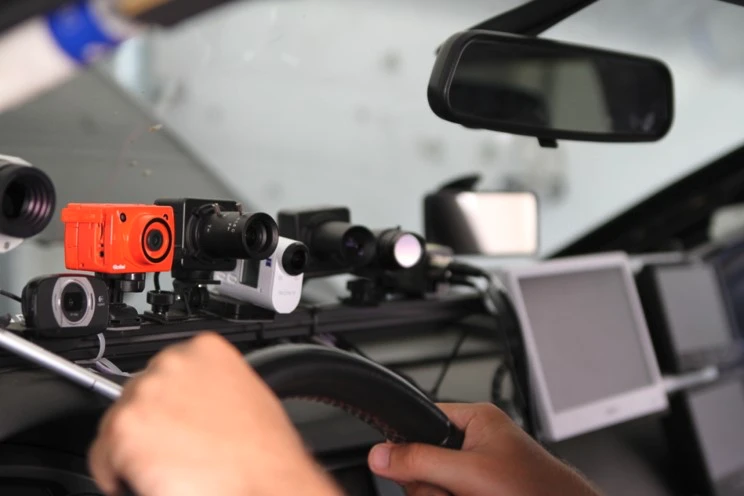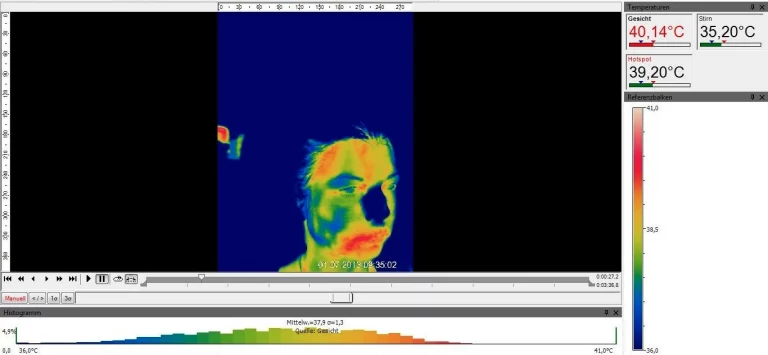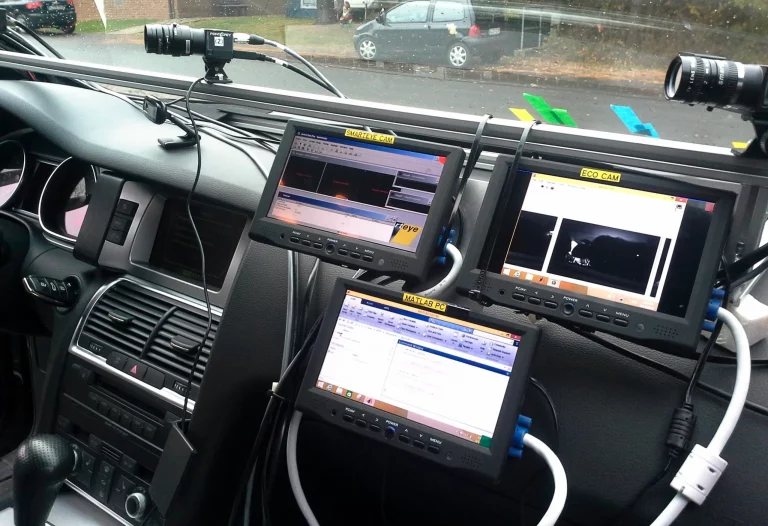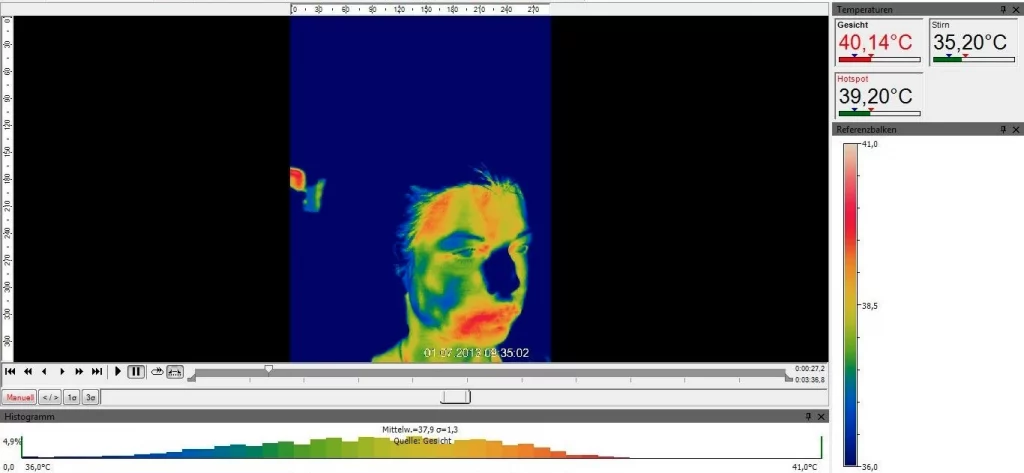
Mental Workload Detection based on non-invasive Psychophysiological Measures
Project Justification
Interacting with ADAS and user interfaces within the car while driving might lead to mental overload and thus reduced road safety. Thus, estimating the mental workload induced by assistance and infotainment systems is an important task in developing safe and distraction free User interfaces. Thus, the aim of the project was to develop a suitable set of psychophysiological methods for the measurement of mental workload in the vehicle.
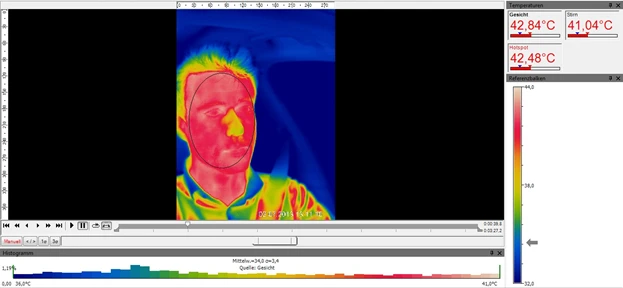
Real-time Facial Thermal Imaging of a participant during a drive in the driving simulator
Our Approach
In a driving simulator setting 60 subjects were confronted with several mental workload inducing tasks as narrowed lanes or passing trucks. While performing the driving tasks several bio and video signals were recorded, e.g. Electrodermal Activity (EDA), cardiovascular measures (ECG), and Facial Thermal Imaging (FTI).
Section of the thermocam and course of the face temperature during a drive in the driving simulator
ECG and heart rate during a drive in the driving simulator
Insights and Outcomes
A late fusion approach of ECG, FTI, and EDA showed the best accuracy in capturing mental workload. These results improved when applying a brute-force multi-purpose feature set to machine learning algorithms.
Related Projects
Sudden sickness, distraction, and mind wondering detection by camera and audio based approaches for hand over situations in autonomous driving
Camera-Based Monitoring of Safety-Critical Driver Conditions
Evaluation of multiple fatigue intervention systems
Multimodal physiological measurements of mental workload for evaluating ADAS



